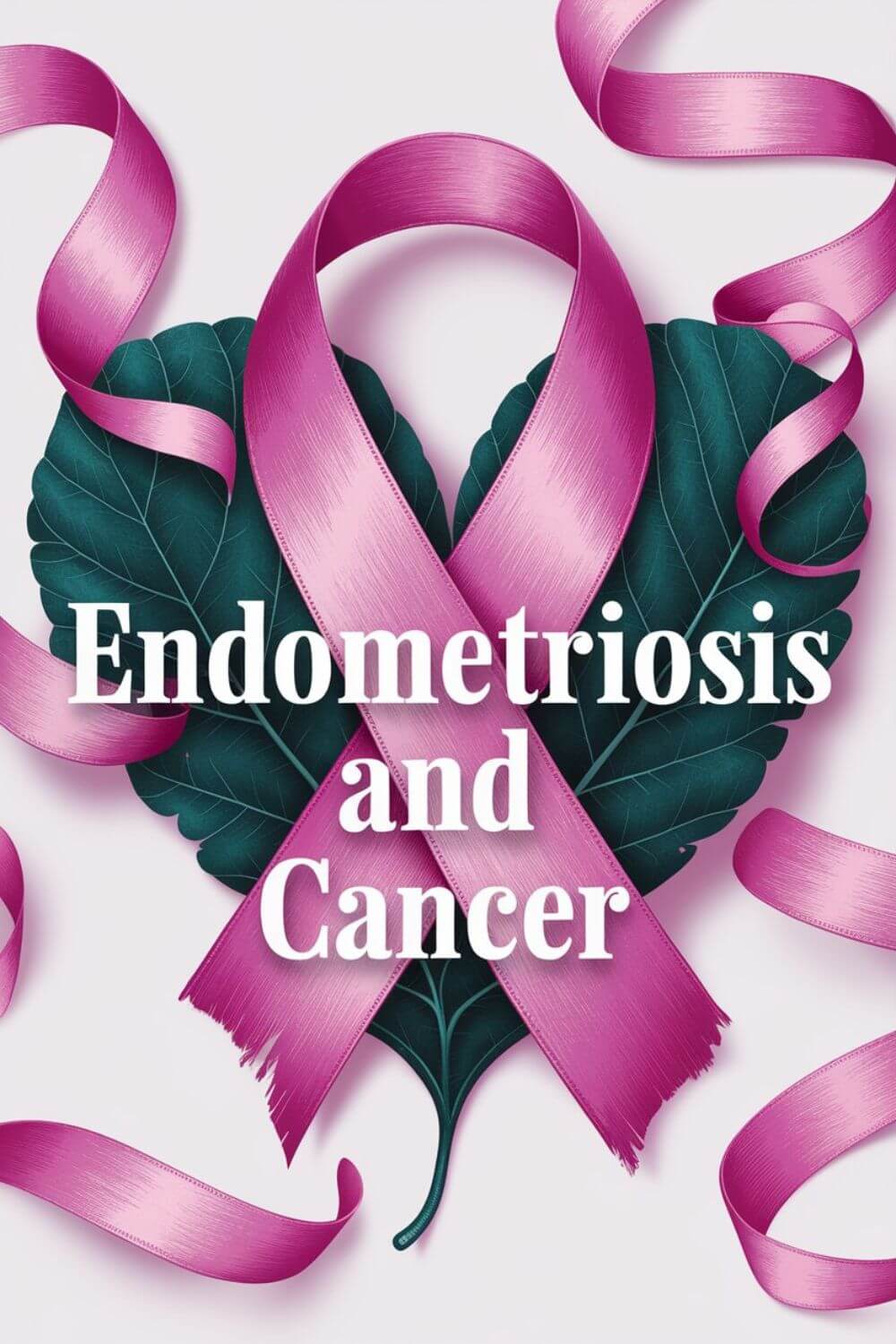Endometriosis and Cancer: What Should You Know?
When it comes to understanding the connections between endometriosis and cancer, many striking parallels exist even though they are largely overlooked.
Endometriosis, a chronic condition where tissue similar to the uterine lining grows outside the uterus, shares certain cellular characteristics with cancers. However, women are not treated with the same urgency, often facing delays in diagnosis and dismissal of symptoms.
As a husband of a woman with stage IV deep infiltrating endometriosis, I’ve witnessed firsthand her worries about cancer-like cysts, endometriomas, and systemic neglect of her health concerns.
Read on for deeper insights...
- Endo-Tool: Endometriosis for Men
- What Are the Parallels Between Endometriosis and Cancer?
- Cancer Risks Associated with Endometriosis
- Emotional Toll and Mental Health Impact
- Lack of Medical Recognition and Support
- Treatment Options for Endometriosis and Cancer
- Hormonal and Genetic Influences in Endometriosis and Cancer
- Living with Chronic Pain and Cancer-Like Symptoms
- Societal Stigma and Emotional Weight
- Raising Awareness for Endometriosis Through a Cancer-Like Lens
- Parallels in Public Support and Fundraising Efforts
- Future Research Needs and Advocacy Efforts
- Final Thoughts on Endometriosis and Cancer
Endo-Tool: Endometriosis for Men
As a bloke, I struggled to spell the word, let alone understand it – endometriosis is a very complex beast. So, before we move on, I have something on offer for you I wish I had when I was in the trenches of understanding this insidious chronic condition.
I urge you to explore a free chapter of my book designed for men like me coping with endometriosis challenges alongside their partners. It offers deep, genuine value through personal insights, emails, discounts, and more.
The first chapter alone comprehensively covers:
- What is endometriosis?
- What are the symptoms?
- What causes endometriosis?
- What does endometriosis look like?
- What are the stages?
- What are the types?
- What is adenomyosis and how is it related to endometriosis?
- Why do some women develop severe endo and others don’t?
- Does endometriosis cause infertility?
- How is endometriosis diagnosed?
- Do types and stages affect the treatment?
- Recurrence of endometriosis after excision surgery.
FREE Chapter of “Endo-Tool”
Endometriosis e-Book for Men
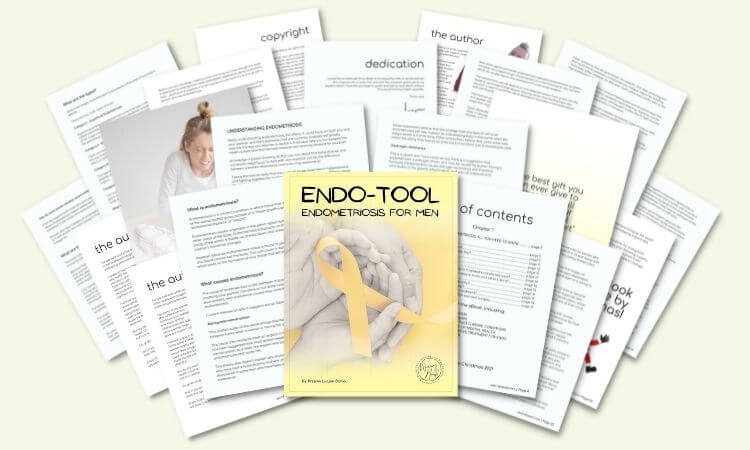
What Are the Parallels Between Endometriosis and Cancer?
The connection between endometriosis and cancer is one that’s rarely discussed yet carries significant weight in the lives of those affected. Supporting my wife through her battle with stage IV deep infiltrating endometriosis, I’ve witnessed firsthand the profound anxiety it brings—much of it rooted in the fear that her condition could mimic or even develop into cancer.
The heavy emotional toll, heightened by persistent cysts, endometriomas, and complex health challenges, creates a constant undercurrent of dread, as these cellular invasions in her body echo cancer-like behaviors.
Society’s approach to both conditions reveals a stark disparity: cancer is widely acknowledged, receiving immense support and resources, while endometriosis, despite being debilitating, remains grossly underestimated.
The differences go beyond just health outcomes; they deeply affect the perception, care, and urgency with which sufferers’ needs are met. As a caregiver, it’s difficult to navigate this landscape when your partner feels the fear of potential cancerous developments but receives none of the same validation or urgency in care.
Cancer’s presence often involves clear-cut diagnosis and extensive treatment protocols, whereas my wife’s endometriosis has led to years of misdiagnoses, dismissed symptoms, and unfulfilled promises of relief. The similarities between these conditions—the invasion of healthy tissue, chronic pain, and the potential impact on fertility—exacerbate her concerns.
With every appointment and new symptom, my wife’s worry is compounded by the looming thought – Is it more than just endo?
Living alongside this condition has not only reshaped her life, from a passionate dancer to a medically challenged patient but has also transformed me into a constant, unwavering source of support. For men like me, it’s more than just being a supportive partner; it’s confronting a system that often fails to treat our loved ones with the gravity their condition deserves.
Helping men understand this unique, overlooked reality is crucial because when we learn and support each other, we help the women we love through their worst fears and darkest moments.
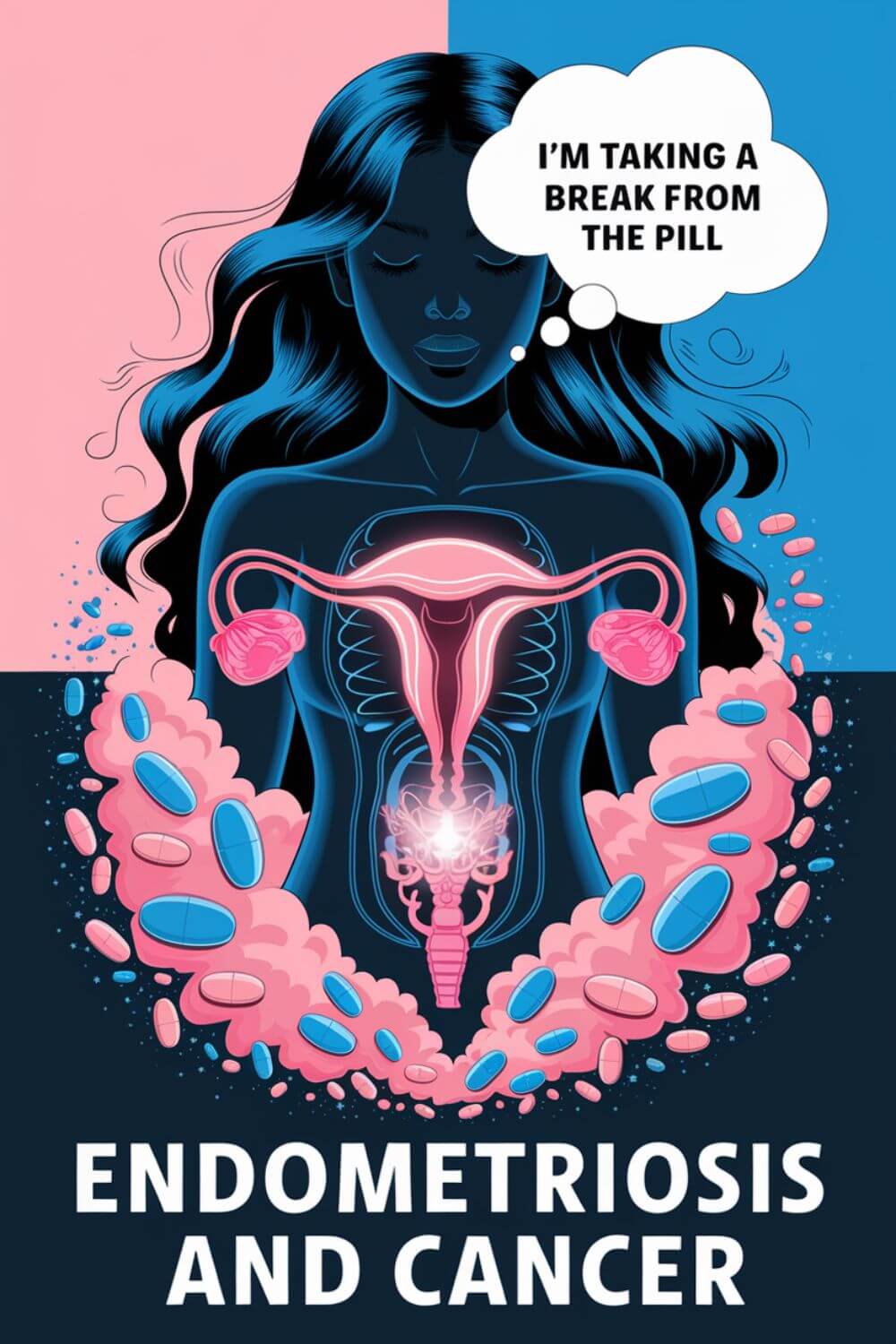
Shared Characteristics with Cancer
- Tissue Invasion and Growth:
Endometriosis and cancer both involve abnormal growth of tissue that invades other organs. While cancer often spreads more aggressively, endometriotic tissue can still deeply infiltrate organs, causing severe pain, infertility, and other complications. - Inflammation and Immune Response:
Chronic inflammation is common in both conditions. Endometriosis, like many cancers, triggers immune responses that can exacerbate symptoms and lead to tissue scarring. - Hormonal Influence:
Both conditions are heavily influenced by hormones, especially estrogen. This shared characteristic often means treatment involves hormone suppression, though outcomes and goals may differ. - Cyst Formation:
Endometriomas, or ovarian cysts caused by endometriosis, bear similarities to ovarian tumors in appearance and can be complex to differentiate, increasing anxiety in patients. - Genetic Predisposition:
There is evidence suggesting genetic links that can predispose individuals to either condition. Families with histories of endometriosis may also have cancer risks, further connecting the two. - Impact on Quality of Life:
The chronic pain, fatigue, and mental health struggles stemming from both conditions profoundly affect the quality of life. Despite this, endometriosis lacks the same widespread recognition and support systems available to cancer patients.
Cancer Risks Associated with Endometriosis
For years, I’ve watched my wife worry over what felt like an invisible threat—endometriosis with the potential risk of cancerous changes. While it’s important to clarify that endometriosis itself is not cancer, studies suggest that women with this condition, particularly those with severe forms like deep infiltrating endometriosis, may have an elevated risk of certain cancers, including ovarian cancer.
This fear isn’t baseless; it’s rooted in experiences with endometriomas that resemble ovarian tumors and a medical community that often leaves these concerns unaddressed.
Hormonal imbalances, chronic inflammation, and genetic factors shared by endometriosis and certain cancers further compound anxiety. Each cyst or growth raises alarms—not just for its own debilitating impact, but for the looming, persistent worry of what it might signify. My wife’s journey has been shaped by constant vigilance, unanswered questions, and a health system that doesn’t always provide clear answers.
The lack of research and focused care means patients like my wife endure compounded suffering, facing stigma, dismissiveness, and the possibility of serious complications without robust support. Recognizing these risks matters—not just for better medical care but for validating every woman’s justified concern. As partners, we must confront and share these fears to better support the ones we love.
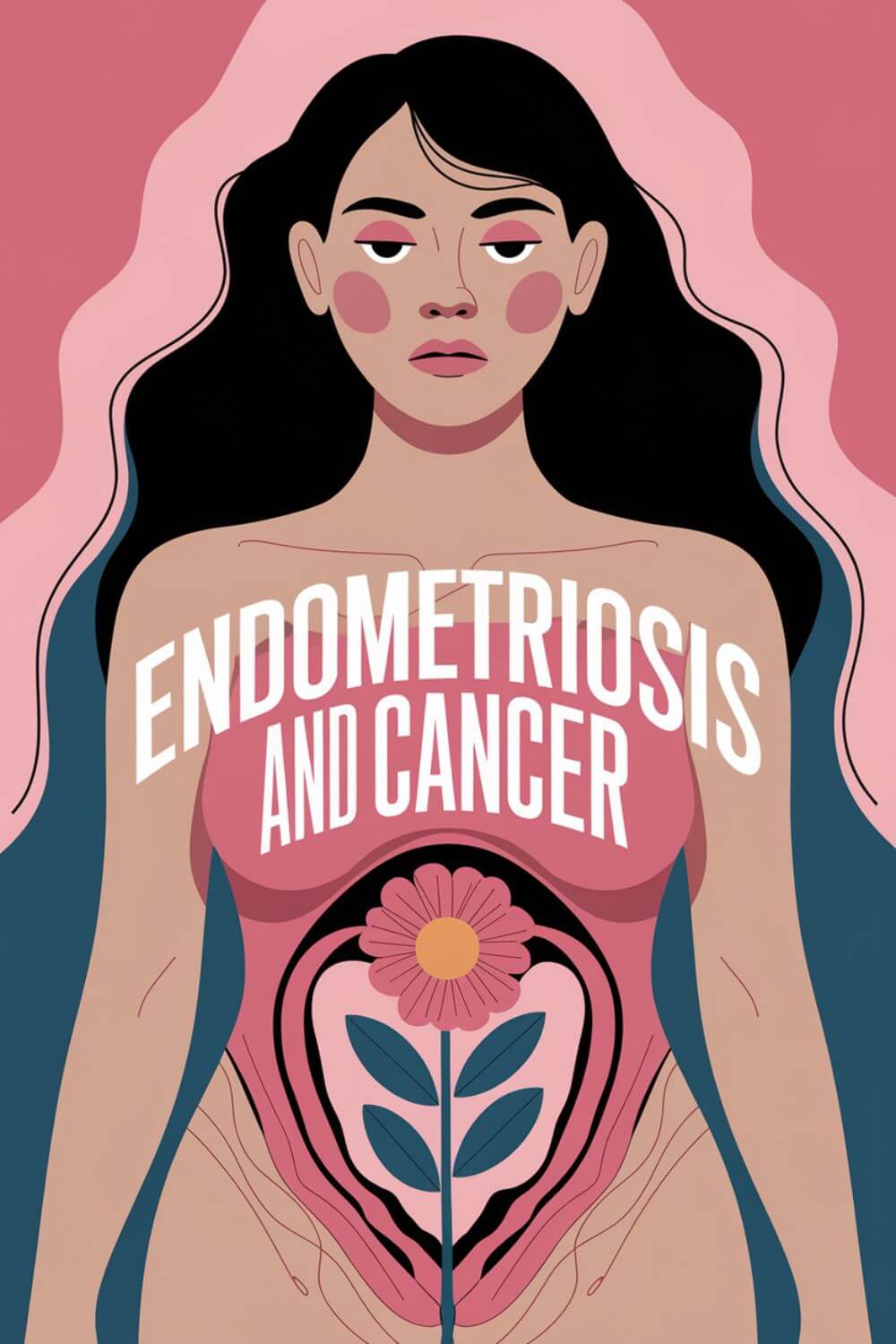
Emotional Toll and Mental Health Impact
Living under the persistent threat of cancer-like complications from endometriosis brings a crushing mental toll—not just for those with the condition, but for their partners as well. I’ve seen my wife endure sleepless nights worrying about what new pain or cyst might signify. Anxiety, depression, and even hopelessness become constant companions when the fear of cancer shadows every medical visit.
My role is to be a stabilizing force, but I, too, grapple with fear and helplessness, watching her fight a silent battle no one seems to see.
The emotional and mental health effects of these fears are often dismissed or ignored by healthcare systems, leaving patients and their caregivers to fend for themselves. For women battling endometriosis, the burden of “what-ifs” can be overwhelming.
But as partners, we must stand beside them—validating their fears, seeking answers, and fighting for recognition and better care. Only then can we truly support those we love through the darkest of moments.
Lack of Medical Recognition and Support
One of the most devastating aspects of my wife’s battle with endometriosis is the dismissive attitude she and countless other women face from the medical community. Unlike cancer, which commands swift attention, empathy, and thorough care protocols, endometriosis is often downplayed, misunderstood, or ignored altogether. The pain and health implications are very real, yet systemic neglect leaves patients to navigate a maze of misdiagnoses and ineffective treatments.
For my wife, every new symptom is met with trepidation; she’s already faced years of frustration, confusion, and feeling unheard.
Despite experiencing symptoms that can mirror malignancies, such as unexplained growths and severe organ infiltration, her health concerns are too often treated as secondary or unworthy of immediate, comprehensive care. This disparity in medical recognition places an added strain on both patients and their caregivers—leaving us to advocate, research, and plead for basic acknowledgment of our loved ones’ suffering.
As men, we find ourselves forced into roles of constant protector and healthcare intermediary, pushing for doctors to listen, to test, and to understand the severity of what our partners endure. In a world where cancer rightly garners public and medical outcry, it’s beyond frustrating to watch endometriosis remain in the shadows, even when its impact can be just as devastating.
By recognizing this gap, I hope to bring awareness not just to the medical community but to every partner, friend, and loved one who stands beside someone with endometriosis.
This fight demands greater recognition, empathy, and understanding—starting with every person who takes the time to learn. We can only hope that one day, endometriosis will no longer be an overlooked shadow of suffering, but a condition met with the respect and resources it desperately deserves.
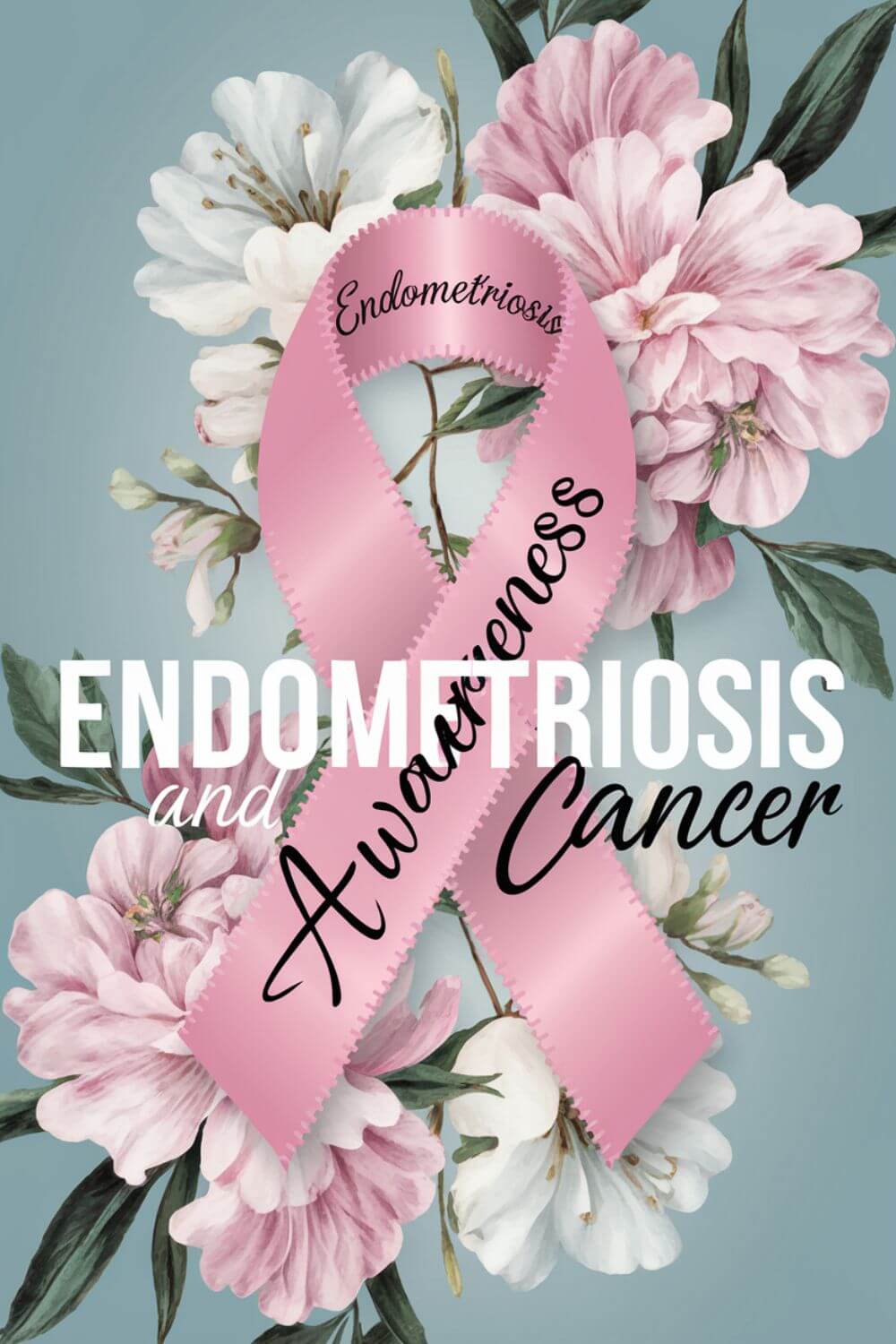
Treatment Options for Endometriosis and Cancer
The contrast in how endometriosis and cancer are treated by the medical community reveals stark disparities that have real consequences for patients.
Cancer treatment often follows a well-defined path, backed by extensive research, specialized care, and public awareness campaigns. Meanwhile, endometriosis sufferers navigate a patchwork of treatments, often starting with trial-and-error pain management and hormonal therapies.
For many, surgery may become necessary, yet even then, the recurrence of symptoms is a frequent, frustrating outcome. Unlike cancer care, endometriosis treatment lacks cohesive protocols and urgent intervention. My wife’s experience has shown how this disparity compounds suffering.
While cancer patients often have a dedicated care team and support network, endometriosis patients frequently endure misdiagnoses, dismissive attitudes, and inconsistent treatment approaches. Even after years of navigating this painful condition, the path forward remains unclear—often leaving patients feeling isolated, invalidated, and desperate for better care.
This contrast isn’t just about treatment protocols but about how the conditions are perceived and prioritized. Medical and public attention to cancer drives innovation and compassion, while endometriosis, though life-altering, is often overlooked.
Addressing this imbalance starts with recognizing that while these conditions differ in prognosis, their impact on lives deserves the same level of dedication and respect. Only then can we hope for equitable care and meaningful advances in endometriosis treatment.
Hormonal and Genetic Influences in Endometriosis and Cancer
Hormones, particularly estrogen, play a pivotal role in both endometriosis and various types of cancer, including ovarian and breast cancers. For my wife, every hormone surge brings new endometriotic growths, inflamed tissues, and the lingering fear of cancer development. This hormonal sensitivity often makes treatment complex, involving hormonal suppressants with mixed results and challenging side effects.
Genetics also comes into play; families with a history of endometriosis may carry heightened cancer risks. Yet, while cancer-related genetic testing is prioritized, genetic links in endometriosis remain largely understudied, highlighting another gap in care and research focus. Addressing these shared hormonal and genetic influences is essential to understanding both conditions more deeply and improving targeted care for those affected.
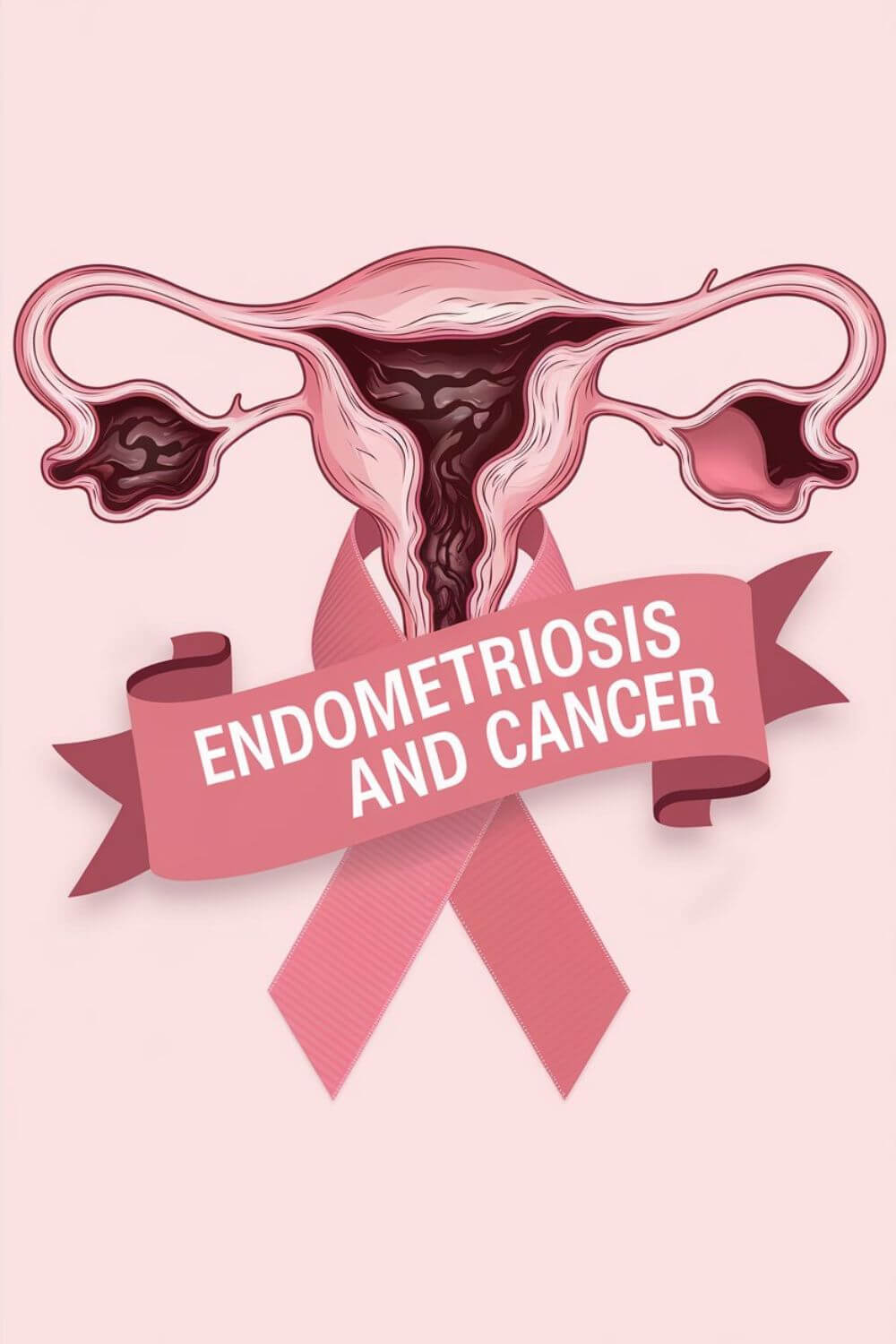
Living with Chronic Pain and Cancer-Like Symptoms
Chronic pain is one of the most excruciating parts of my wife’s daily life with endometriosis. The physical agony she endures can mimic cancer-like symptoms, from intense pelvic pain and cystic growths to deep organ infiltration. Unlike cancer, where pain is often a clear call to action, endometriosis pain is frequently dismissed, leaving sufferers to navigate it alone.
For those with endometriosis, pain management is complex and rarely linear. This relentless, cancer-like pain permeates every aspect of life—relationships, work, self-worth—creating an invisible, isolating prison.
Witnessing this daily as a partner is both heartbreaking and infuriating, knowing that so many others suffer without the empathy or urgency that cancer pain often inspires. Proper recognition and compassionate care for chronic pain are long overdue, and it starts by acknowledging its true weight and impact.
Societal Stigma and Emotional Weight
Endometriosis carries a societal stigma that cancer patients are often spared from. Cancer is seen as a battle fought with courage and met with empathy, while endometriosis—despite its debilitating impact—is misunderstood, and often dismissed as “just bad cramps.”
This dismissiveness isolates those suffering, casting their pain into the shadows. My wife’s journey has been riddled with these challenges, with countless instances of medical professionals trivializing her suffering or offering inadequate solutions.
This societal perception amplifies the emotional burden for both patients and their partners. Endometriosis doesn’t come with ribbons or public campaigns, yet it deserves every ounce of the acknowledgment given to other severe illnesses. Changing this begins with conversations, education, and elevating the voices of those living through it.
The more society understands, the less women will have to endure their battles in isolation, misunderstood, and unsupported.
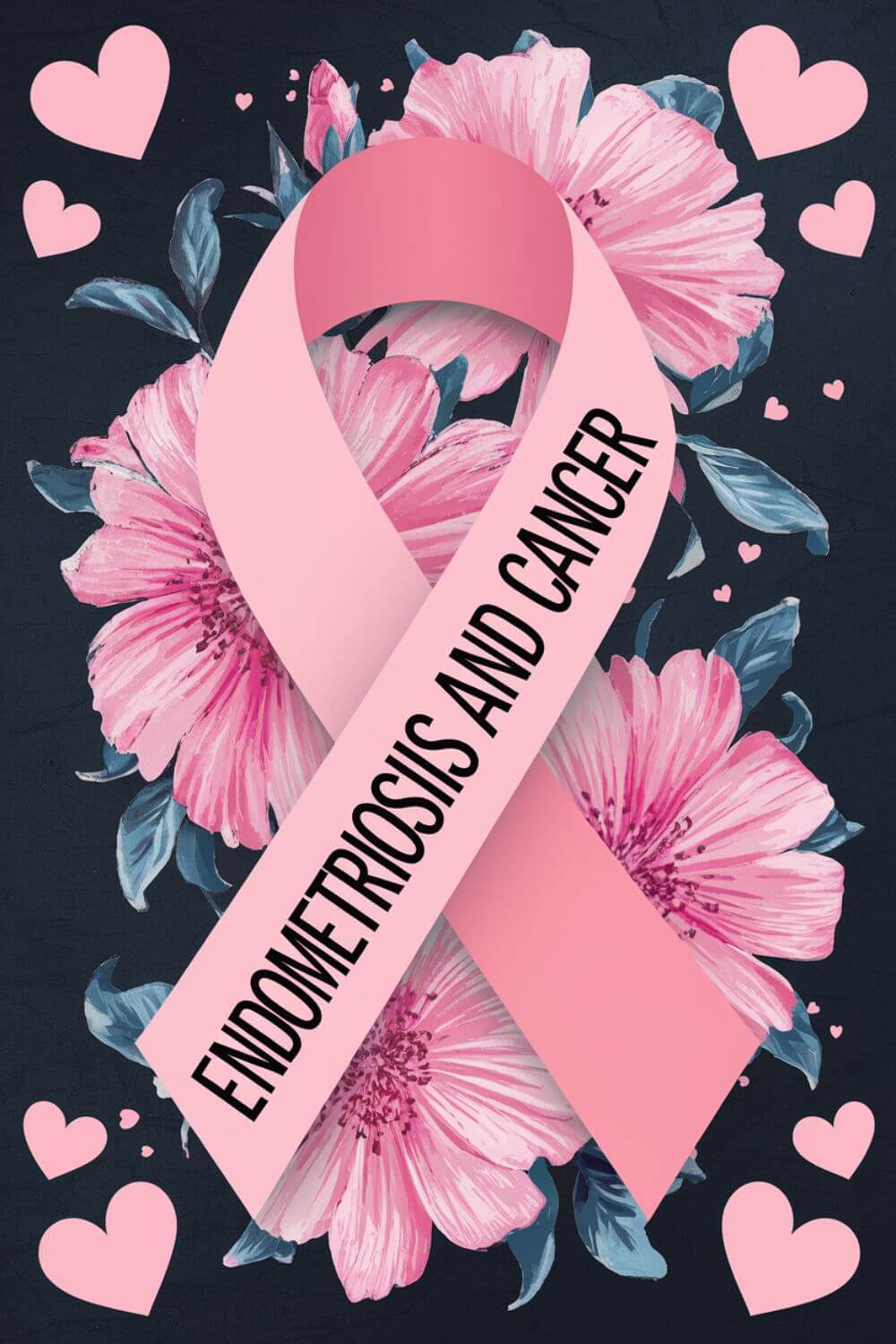
Raising Awareness for Endometriosis Through a Cancer-Like Lens
Raising awareness for endometriosis requires adopting the kind of focused, effective strategies used in cancer campaigns. Unlike cancer, endometriosis rarely receives widespread public recognition or dedicated funding drives. By framing endometriosis within a cancer-like lens—highlighting its chronic pain, organ impact, and life-altering complications—we can amplify its importance and urgency.
Public campaigns, clear diagnostic paths, and empathetic care are all areas where endometriosis must be elevated. Shifting public perception is crucial, so that women with endometriosis are heard, validated, and given the treatment they desperately need.
Parallels in Public Support and Fundraising Efforts
When it comes to public support and fundraising, cancer receives a level of attention and resources that endometriosis patients can only dream of. Large-scale campaigns, walks, ribbons, and well-funded research initiatives for cancer raise both awareness and hope.
Meanwhile, endometriosis, despite being a condition that affects millions, remains largely ignored. This discrepancy not only limits research and treatment options but leaves those with endometriosis feeling sidelined and invalidated.
If endometriosis received a fraction of the public support given to cancer, it could transform lives. More funding would lead to better treatment options, heightened awareness would reduce stigma, and increased research would improve diagnostic accuracy and outcomes.
Every woman affected by endo deserves to feel seen, heard, and cared for, not only as a secondary priority but as an individual facing a debilitating condition that impacts every aspect of their life.
Future Research Needs and Advocacy Efforts
For endometriosis to gain the recognition and care it deserves, a paradigm shift in research and advocacy is essential. Unlike cancer, which benefits from substantial research funding and public awareness campaigns, endometriosis lags behind, leaving millions of sufferers without effective solutions or answers.
Increased funding and dedicated studies could unveil critical insights into disease mechanisms, improved treatments, and possible prevention strategies.
Advocacy must also extend beyond medical circles—into legislation, education, and social awareness—to reshape how society understands and treats endometriosis. Collective advocacy can change lives.
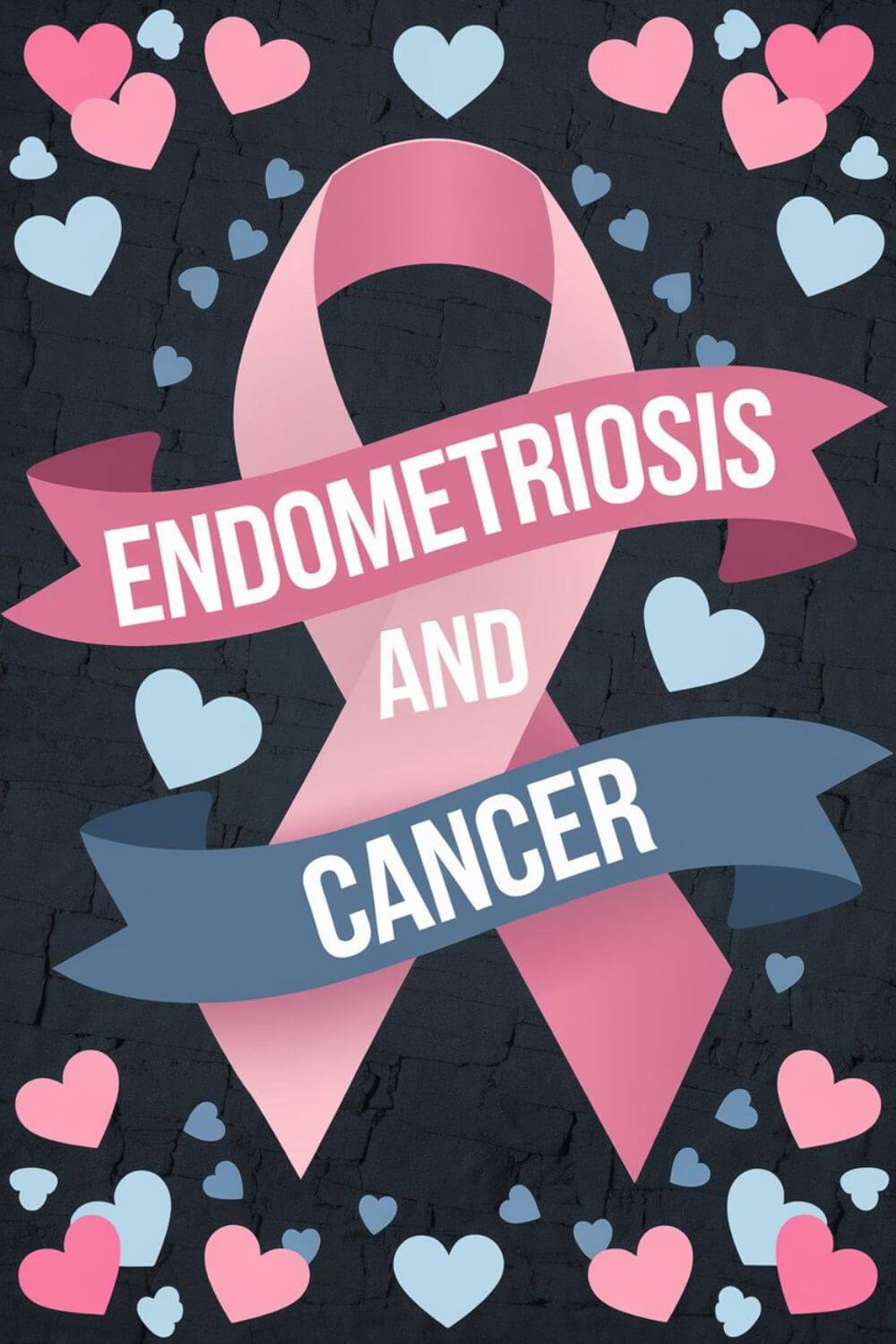
Final Thoughts on Endometriosis and Cancer
Navigating the complex parallels between endometriosis and cancer has been a deeply emotional and often isolating journey for my wife and me. From chronic pain and cancer-like symptoms to the fear of life-threatening complications, these challenges are overwhelming.
Yet, despite the severe impact of endometriosis, it remains overlooked and misunderstood compared to cancer, which receives broader awareness, support, and medical urgency. I’ve seen my wife’s courage as she battles a condition that so few truly understand, all while society minimizes its impact.
Through this article, I’ve aimed to highlight these harsh realities and provide a voice for those who often feel unheard. From hormonal imbalances and genetic risks to public perception and the lack of dedicated care, every facet of this struggle demands more attention. But our journey is not just about facing challenges; it’s about striving for hope, change, and a better future.
As partners, our role is to support, understand, and advocate fiercely for the women we love, making sure their struggles are no longer dismissed or downplayed.
If you’ve felt the weight of this reality or are a partner in a similar situation, I invite you to explore my book, Endo-Tool: Endometriosis for Men. In it, I offer a compassionate guide filled with personal insights, practical strategies, and hard-earned wisdom to help you navigate the complexities of loving and supporting a partner with chronic illness.
My goal is to provide real value, connection, and guidance for men who often have nowhere else to turn—because when men are empowered, the women they support can also thrive.
Please share your thoughts in the comments below. Let’s continue to raise awareness, foster empathy, and drive change together. Thank you for taking this step with me—it means more than words can express. Remember, you’re not alone in this journey. Together, we can make a difference.


About Me
Hi, I’m Lucjan! The reason why I decided to create this blog was my beautiful wife, who experienced a lot of pain in life, but also the lack of information about endometriosis and fibromyalgia for men…
